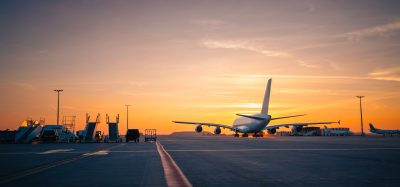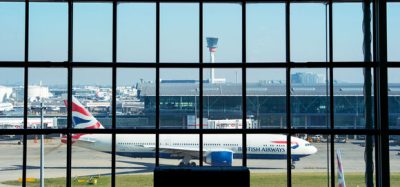Future of UK aviation discussed in Government green paper
- Like
- Digg
- Del
- Tumblr
- VKontakte
- Buffer
- Love This
- Odnoklassniki
- Meneame
- Blogger
- Amazon
- Yahoo Mail
- Gmail
- AOL
- Newsvine
- HackerNews
- Evernote
- MySpace
- Mail.ru
- Viadeo
- Line
- Comments
- Yummly
- SMS
- Viber
- Telegram
- Subscribe
- Skype
- Facebook Messenger
- Kakao
- LiveJournal
- Yammer
- Edgar
- Fintel
- Mix
- Instapaper
- Copy Link
Posted: 19 December 2018 | International Airport Review | No comments yet
The UK Government has released a green paper which details the future plans for the aviation industry, but does it do enough to support such a vital industry?


The Government has released it’s vision for future of aviation with its new ‘Aviation 2050’ green paper. The Department for Transport is seeking feedback on its green paper which outlines proposals for a new aviation strategy.
The strategy will set out the challenges and opportunities for aviation to 2050 and beyond and will emphasise the significance of aviation to the UK economy and regional growth.
The strategy will focus on:
- Developing a partnership for sustainable growth which meets rising passenger demand, balanced with action to reduce environmental and community impacts
- Improving the passenger experience, including through technology and innovation, a new passenger charter and action to reduce delays at the border
- Building on the UK’s success to establish new connections across the world and create greater choice for consumers.
Responding to the publication of the Aviation Strategy Green Paper, Chief Executive of the Airport Operators Association Karen Dee, said: “The Aviation Strategy Green Paper’s proposed partnership for sustainable growth is a welcome recognition of the enabling role aviation plays for the UK. It means the Government recognises that improving aviation connectivity is crucial to boosting economic growth and creating new jobs across the UK as part of a Global Britain agenda. The UK aviation industry has a long-standing commitment to sustainable growth. As a result of investment in innovation and new technology and development of new operating procedures , UK aviation has emitted less CO2 in 2017 than in 2005, despite more passengers travelling.
“We look forward to working in partnership with the Government to create a final Aviation Strategy that puts the consumer at the heart of an ambitious plan for boosting investment in UK airport infrastructure, lowering barriers to expand the UK’s route network as well as ensuring we have a secure but welcome border. Efficient surface access to airports is vital to ensuring future sustainable growth and providing better connectivity for passengers. We look forward to working with the Government on bringing much needed clarity and consistency to the surface access planning process, aligning relevant stakeholders and ensuring schemes are delivered at pace. A strong Government commitment to airspace modernisation, delivered in close partnership with industry, will be vital to reduce noise impacts and further CO2 emission reductions. Further specific measures around noise are best set at a local level, in close collaboration with communities around airports to reflect local circumstances and concerns.”
John Holland-Kaye, Heathrow CEO, commented: “We welcome the Government’s Aviation Strategy – and it’s recognition of the central role our industry plays in the UK’s economic prosperity, We are constantly working to improve the way we operate for the benefit of passengers, airlines and for our local residents, and we agree it is right that the Strategy focuses on sustainability, competition and choice, and passenger experience. We are also pleased to see the detail of the Government’s final plans for airspace modernisation, which will equip the industry with the tools to be more resilient, deliver more reliable service, and to reduce its environmental impact.”
Aviation is worth more than £22 billion to the UK economy through creating jobs, boosting growth and connecting regions. As passenger and freight demand increases, the consultation proposes a partnership for future sustainable growth.
This will ensure the UK continues to benefit from a world class choice of connections and airlines while tackling the environmental and community impacts of flights.
The consultation also sets out how the government plans to modernise our airspace, ensuring journeys are quicker, cleaner and more efficient in the future, reducing congestion, noise and emissions and helping avoid future delays.
Aviation Minister, Liz Sugg, said: “Our aviation sector is world-leading and the Aviation 2050 strategy will promote success in the coming decades. Our ambition is to expand our international connections, boost trade and investment and strengthening domestic links to support businesses and travelling passengers. By working with industry we will drive sustainable growth, ensuring the next generation will continue to benefit from the growing number of opportunities this exciting and innovative sector offers.”
Proposals to support aviation growth in the consultation include:
- Setting out a framework for future sustainable growth
- Commitments to signing further liberal air service agreements with countries around the world to boost trade and tourism
- Measures to encourage greater competition and more choice for passengers
- Modernised UK airspace to improve efficiency and reduce delays.
Building on the positive steps already taken by the industry in balancing further growth with action to address environmental and community impacts, the document outlines new practical requirements to reduce emissions and noise levels for local communities alongside tougher enforcement measures.
It includes plans to embed noise exposure levels into the planning approval process, the introduction of noise caps which will be regularly reviewed and enforced, along with the appointment of a Chair of the new independent commission on civil aviation noise.
Tackling climate change will be a key requirement of future growth, with a proposal for negotiating a long-term global emissions target for international aviation to incentivise industry to adopt cleaner technologies.
Plans include that applications for growth must also demonstrate they will not prevent the UK’s ability to meet its Climate Change Act 2008 targets.
Tim Alderslade, Chief Executive of Airlines UK, said: “We welcome the next stage in the government’s aviation strategy. Airlines look forward to continuing to work with Ministers to create a strategy that helps to deliver sustainable growth in our sector. To connect UK families and businesses domestically and to the world, deliver value for money, and further improve the travelling experience for all passengers. The consultation follows parliamentary approval for a new runway at Heathrow earlier this year, which will provide new routes and support businesses across the country, supplemented by a world class package of compensation and mitigation measures for local communities.”
The strategy will seek to further maximise benefits to regional growth and connectivity by encouraging efficient use of infrastructure beyond Heathrow, delivering greater capacity at UK airports and driving competition between airlines to deliver better value for money for customers.
Manchester Airports Group (MAG) commented: “The UK’s aviation sector will underpin the Government’s aspirations for a global and balanced Britain, and its Aviation Strategy, published today, provides important recognition of the industry’s potential to contribute to continued economic growth and prosperity.
“MAG is fully committed to reducing the environmental impact of its airports and is working hard to drive economic growth and employment opportunities for local communities. Initiatives like the recently opened Stansted Airport College will leave a positive legacy of skills and education felt well beyond the airport.
“When this strategy is finalised it will need to enable growth in both the short- and the long-term, and make all parts of the UK amongst the most competitive places in the world to start new routes. It is important the consultation process is now used to identify the policies and other measures that will do most to deliver that goal.
“For example, as MAG invests more than £1.5 billion in our airports over the next five years, we want to work with Government to maximise the benefits of direct connectivity right across the country. Airports like Manchester, London Stansted and East Midlands are strategic national assets, connecting people and goods to the world.”
Related topics
Aeronautical revenue, Air traffic control/management (ATC/ATM), Airport construction and design, Airport development, Border control, Economy, Regulation and Legislation, Sustainable development
Related airports
Related organisations
Airlines UK (AUK), Airport Operators Association (AOA), Manchester Airports Group (MAG)


















